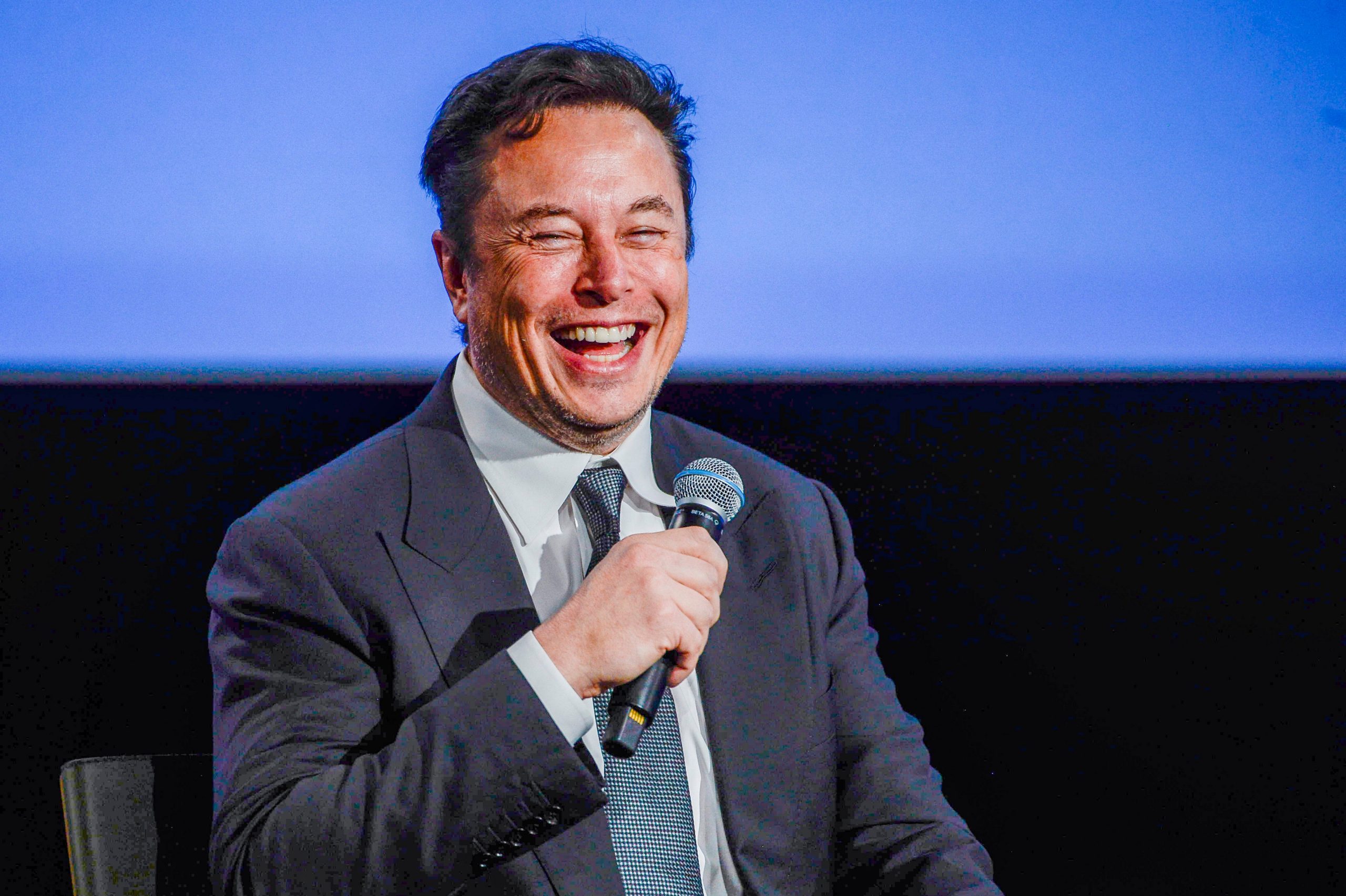The company behind brain chips that a quadriplegic monkey played Pong with has begun recruiting humans for its first human trial. Tesla and X (formerly Twitter) CEO Elon Musk confirmed the next step of research on their Neuralink chip in a post to X.
Musk also unleashed a series of photos and videos of the Boring Company’s tunnel project under Los Angeles, promising it will reduce traffic.
Star Wars-style robotic hands
Elon Musk is the billionaire entrepreneur behind a variety of successful tech projects, including PayPal, Tesla, and SpaceX. His latest project, Neuralink, is a neurotechnology company that is trying to link the human brain directly with computers. Its goal is to put humans on an equal footing with artificial intelligence.
Neuralink’s first human trial will use a brain chip to allow paraplegics to control a computer by thinking. The company is now recruiting people to be a part of the study, which will last up to six years. The chips will be implanted in the brain, and participants will be able to move a mouse cursor or type with their thoughts.
Those with spinal cord injuries could eventually use the technology to write books, research for work, or even play games. It would give them a more immersive experience, allowing them to use their bodies as they see fit. In addition, it could help them communicate with others and navigate the world around them. The technology could also help with tasks such as cooking, cleaning, and bathing.
While the concept sounds promising, critics have raised concerns about safety and privacy issues. They have also questioned whether it is ethical to implant people with brain chips that could potentially affect their mental health. They have also called for a ban on such testing, arguing that the experiment violates the human rights of those who participate.
The company has already tested its brain-computer interface with monkeys. In 2021, it showed a video of a monkey playing Pong using only its mind. However, the US Food and Drug Administration has rejected the test, citing a dozen concerns. These include the possibility that the small chips could travel to other parts of the brain or overheat.
It is possible that Elon Musk’s company will eventually get approval for its device. Its brain-computer chip has flexible “threads” designed to connect the user’s thoughts with a computer. It can also monitor a person’s heartbeat, blood pressure, and body temperature. The technology is intended to make it easier for the disabled to live with their loved ones.
Optimus limbs
Elon Musk, the eccentric entrepreneur behind Tesla and SpaceX, is taking on an even more ambitious project. His brain-computer interface company, Neuralink, is recruiting patients for its first human clinical trial, which will evaluate a wireless implant to allow people to control a computer cursor or keyboard with their thoughts. The neurotechnology company hopes to improve “human to AI (and human-to-human) bandwidth by several orders of magnitude,” Elon Musk said.
The brain chip, which is being developed by Neuralink in collaboration with Microsoft and Intel, can detect neural activity and interpret it as a command to move a mouse cursor or type letters on a keyboard. The chip will be inserted into the brain in a minimally invasive procedure, and the patient can wear a backpack that will monitor the implant’s activity. The implant has been tested in monkeys and other animals. In one demonstration, a monkey was able to play Pong using only its mind. The company plans to test the device in paralyzed patients, with the goal of helping them regain movement and communication skills.
Neuralink will also test a pair of robotic limbs called Optimus, which can move in response to the user’s brain signals. It hopes to develop a full suite of limbs that can be controlled with the mind, including hands, feet, and even breathing. It will also develop a head-mounted display that allows users to interact with computers or robots by thought alone. The company’s founder says that he hopes the technology can be used to help people with paralysis regain their movement and improve their quality of life.
The technology may also be useful for consumer applications, such as brain-controlled virtual reality systems and gaming. However, Musk has a track record of over-hyping his projects, prompting critics to question the feasibility of his latest endeavor. He is well-known for borrowing ideas from science fiction and giving his products names that reference pop culture. For example, Elon Musk named his hyperloop tunnel system after Mel Brooks’ film Spaceballs, and the name of his electric skateboard, the X-Skate, is an anagram for ‘Star Wars.’
Neuralink’s first human trial is set to begin in 2023, with the aim of restoring movement to paralyzed patients. The company initially hoped to enroll 10 patients in the pilot, but it later settled on a smaller number of candidates after FDA officials raised concerns.
Elon Musk: Artificial intelligence
As humans, we are at a disadvantage against artificial intelligence. However, if we can develop brain-computer interfaces, we may be able to compete with machines in some ways. This is the goal of neurotechnology company Neuralink, founded by Elon Musk, founder of PayPal, Tesla, and SpaceX. In a recent blog post, Musk wrote that the company’s first human trial by Elon Musk will be to implant a brain-computer chip that can communicate with a person’s thoughts.
The company plans to test the device with individuals who are paralyzed and want to control a computer cursor or keyboard using their minds. In May, Neuralink received approval from the US Food and Drug Administration to begin the study. The trial will involve 10 participants who will receive a surgical implant of the brain chip, known as PRIME. The chip transmits data wirelessly to an app that decodes the intention of movement. The brain signal is then transmitted to a robotic arm, which translates the intention into physical movements.
The implant is similar to a pacemaker. It consists of an ultra-thin wire that connects to the brain. The implant is so small that it can’t be seen with the naked eye. The device can also record the movements of a subject’s muscles and nerves. The company claims that the brain-computer interface can be used to help people recover from a stroke or spinal cord injury. It can even help them communicate with a loved one.
Aside from restoring mobility to the paralyzed, the technology could help with other health conditions as well. For instance, it can be used to treat Parkinson’s disease and prevent epileptic seizures. It can also be used to improve the lives of people who have ALS.
Although the company’s first human trials will focus on a limited scope, it hopes to expand the technology in the future. Musk believes it will be critical for humans to keep up with advances in artificial intelligence. He fears that if we do not create a brain-computer interface, it could lead to an arms race between humans and artificial intelligence.
Neuralink’s first human trial
Elon Musk is on a mission to create technology that will connect human brains to computers. His company Neuralink recently announced that it will conduct the first human trial of a brain-computer interface (BCI) implant. The implant is designed to let people control a computer cursor and keyboard with their thoughts.
The implant is called the Link and consists of 1,024 thin electrode threads that stimulate neurons inside the brain. The device is inserted with the help of a surgical robot to avoid any human error. According to the company, the device could be used to replace faulty neurons and improve movement abilities. It could also be used to communicate with other people, like having a “kind of advanced long-term telepathy” over radio waves.
In the future, the chip could even replace limbs, like the robotic prosthetic arm that Luke Skywalker uses after losing his hand in a duel with Darth Vader in Star Wars. The implant is still in the prototype phase, but Neuralink hopes to have it ready for human testing next year. It will be able to transmit more information than the current state of the art, which can only send about one byte per second.
Those who have quadriplegia from cervical spinal cord injury or amyotrophic lateral sclerosis may qualify for the study. The company is asking potential participants to sign up on its website. The study will take place over 18 months and involve home visits and clinic visits.
While the technology is promising, there are still many barriers to overcome before it can be used by the general population. Some experts say that mainstream use of BCI devices will not happen until they are able to perform tasks beyond controlling a computer cursor and typing. For example, they may allow users to control smart home devices or play games with their minds.
Elon Musk, the founder of Tesla and SpaceX, is reportedly in talks with a big pharmaceutical firm to develop a drug that would increase the bandwidth of brain-to-computer communication. This will allow humans to communicate faster and more accurately with artificial intelligenc




